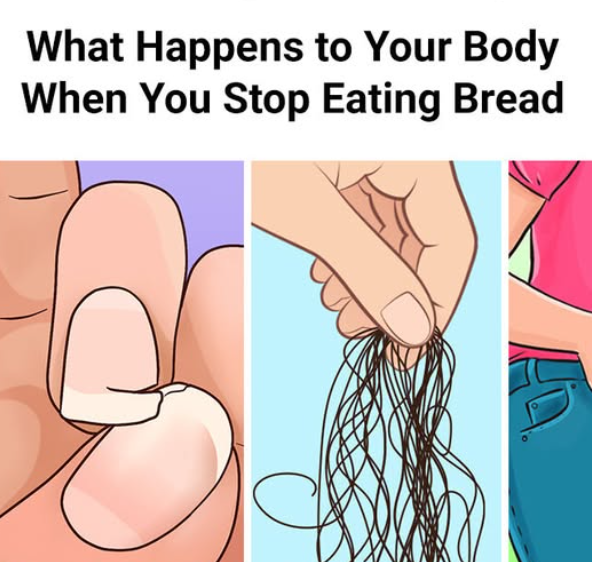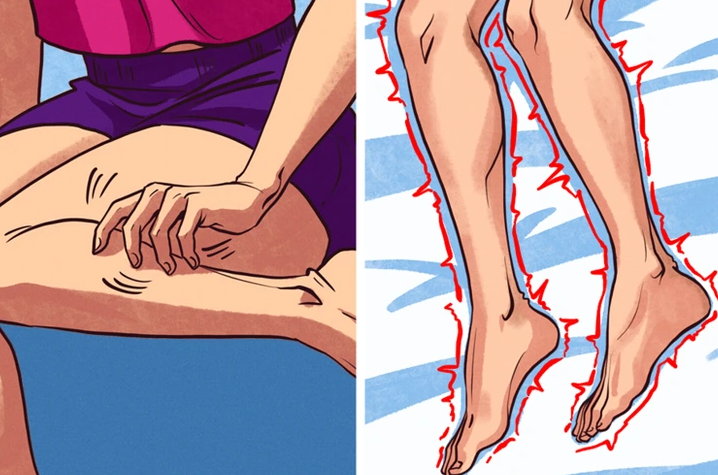
Bread is often among the first foods you want to cut out of your diet when you want to start eating healthier. But when it comes to carbohydrates, grains are anything but equal. And while cutting out white bread may allow you to shed a few pounds, cutting out whole grain bread can actually deprive your body of much-needed nutrients.
1. Your nails might break
Whole-grain bread is a good source of magnesium, which is important for protein synthesis and overall nail health. A deficiency in magnesium can cause issues like vertical ridges in the nails. If cutting out bread means you’re not getting sufficient magnesium from other sources, it could have negative effects on your nail strength.
2. You might experience leg cramps.
Those who are trying to lose weight are willing to experiment with just how low their carbohydrate intake can go, but cutting out bread altogether can have some unpleasant side effects. If you’re planning to go keto, which means cutting out bread and other carbs almost completely, you may suffer from leg cramps. These painful cramps typically occur at night and can last from seconds to minutes. Bread is rich in electrolytes, and when your body doesn’t get enough of these essential nutrients, it can lead to cramping.

3. You may feel fatigued.
Though white bread isn’t the healthiest way to get enough carbohydrates, eating whole wheat and sprouted grain bread in moderation can help to keep you feeling energized. As they’re rich in iron, fiber, and magnesium, these foods will help you to feel full and energized. They can even help you to get enough energy to hit the gym after a hard day at work.
4. You might gain weight.
Certain individuals may find themselves compensating for the absence of bread by consuming other high-calorie foods, which could result in weight gain rather than weight loss.
5. Your sugar cravings might strike.
Bread can be used for energy. In case you don’t eat it, you have to find another source of energy elsewhere. When we feel tired and drained, we naturally reach for foods that give us a quick energy boost, like sugary drinks and sweets. Eating bread in moderation won’t make you pack on the pounds. But eating cookies and chocolate when you feel exhausted will.

6. Going to the bathroom may become more difficult.
If you’re cutting out regular white bread, this may not be much of a problem for you. But cutting out whole grain or rye bread may actually cause you to spend more time going to the bathroom. Whole-grain bread has been shown to be more effective than laxatives at relieving constipation because it is high in fiber, which helps with digestion.
7. Your mood swings might get worse.
If you’ve ever had the feeling that nothing lifts your mood faster than pizza, there’s actually a scientific explanation. Eating carbohydrates releases a chemical called serotonin. Serotonin is responsible for making you feel good and can even suppress your appetite. This means that indulging in a healthy carb every now and then can actually help you to feel better and keep you from feeling hungry.
8. You hair might fall.
Carbohydrates are a vital energy source for the body, including the hair follicles. A diet low in carbohydrates, such as those that eliminate bread, can deplete energy levels necessary for maintaining healthy hair growth. This can result in increased hair shedding as the body prioritizes essential functions over hair maintenance during periods of energy scarcity.
9. Your risk of heart disease may go up.
When it comes to keeping your heart healthy, the types of grains you choose to cut from your diet can make a big difference . While refined carbohydrates can increase the risk of heart disease, eating whole grains has been shown to lower cholesterol and keep many concerning heart conditions at bay.















